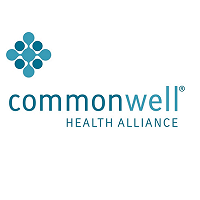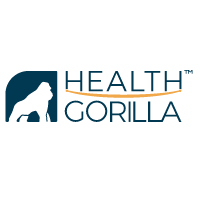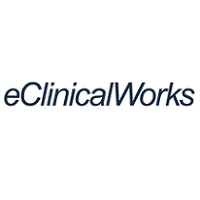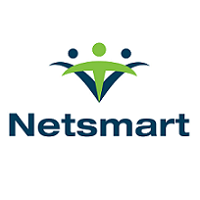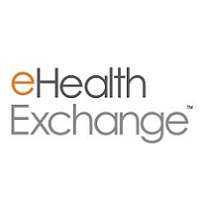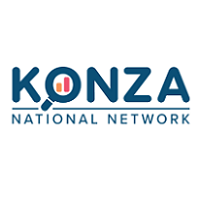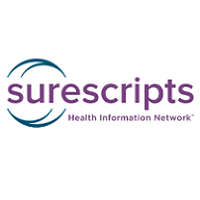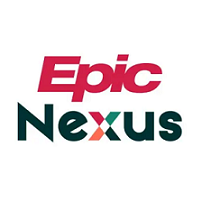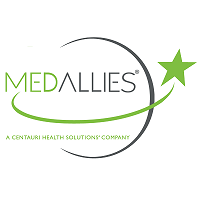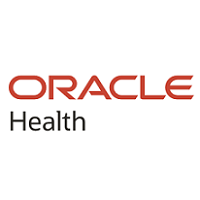We are now well past the 21 year mark in our quest for healthcare interoperability. Under an executive order from president G W Bush (April 2004), the ONC was established and Dr. David Brailer was dubbed “America’s first Health Information Czar.” The Meaningful Use program was then born out of the HITECH Act and Merit-Based Incentive Payment System out of the MACRA legislation. And then information sharing from the CURES Act. And then the release of Trusted Exchange Framework and the Common Agreement (TEFCA). And now the CMS Interoperability Framework. All trying to move our healthcare system to the digital age, better outcomes, controlling and reducing costs, and patient access to their health data. It has not been an easy road and the debate of the journey will never end.
Industry and Contract News
Health Gorilla Named Among TIME’s World’s Top HealthTech Companies of 2025
Health Gorilla, a provider of interoperability solutions and a Qualified Health Information Network (QHIN) delivering real-time, deduplicated, AI-ready health data, is honored to be recognized in TIME magazine’s World’s Top HealthTech Companies of 2025, a ranking that spotlights organizations driving meaningful innovation across the global healthcare landscape.
AMA applauds HHS crackdown on information blocking; Violators beware
The U.S. Department of Health and Human Services (HHS) has taken decisive action to curb information blocking—an issue the American Medical Association (AMA) has long prioritized as a critical barrier to patient care and physician efficiency. In a significant move last week, HHS enforcement framework under the 21st Century Cures Act outlines how the department will investigate and penalize entities that interfere with the access, exchange, or use of electronic health information.
Innovaccer Launches a Social and Community Health Information Exchange for Whole-Person, Community-Centered Care
Innovaccer Inc., a healthcare AI company, announced the public launch of the Social and Community Health Information Exchange (SHIE), a unified, AI-powered platform designed to integrate fragmented data across health, housing, behavioral health, criminal justice, and social service systems. SHIE is custom-built to support county and state-level agencies by enabling coordinated, and consent-driven whole-person care through a compliance-first infrastructure.
eClinicalWorks and Sunoh.ai Assist the Largest FQHC on the East Coast Streamline Clinical Documentation
eClinicalWorks®, an ambulatory cloud EHR, announced that Sun River Health, a Federally Qualified Health Center (FQHC) with 50 sites across New York, is successfully utilizing Sunoh.ai. Providers are leveraging the AI medical scribe to complete nearly 7,000 patient visits every month. The medical transcribing software meticulously captures patient-provider conversations, resulting in a comprehensive History of Present Illness (HPI). Sunoh.ai, fully integrated within the eClinicalWorks EHR, populates these details into the appropriate sections of patient progress notes. The providers can complete documentation on the same day, even with a high patient load, achieving significant time savings.
NextGen Healthcare and Kno2 Team Up to Advance Healthcare Interoperability Nationwide
NextGen Healthcare, a provider of innovative, cloud-based healthcare technology solutions, announced it is joining forces with Kno2, the nation’s largest healthcare communication network and federally designated Qualified Health Information Network (QHIN), to advance interoperability for healthcare organizations across the country.
Hospice of the Western Reserve Selects Netsmart to Enhance Care Delivery for Hospice and Palliative Care
Hospice of the Western Reserve (HOWR), a non-profit provider of hospice and palliative care services, has selected the Netsmart CareFabric® to support its post-acute service lines on a single platform. The Northern Ohio-based provider aims to further its mission to provide compassionate palliative and end-of-life care by leveraging a unified platform that supports its clinical, financial and operational efficiencies across the agency’s 11 locations.
CARIN Alliance Announces Nation’s First Interoperable Digital Identity Credential Trust Framework Policy, Developed in Partnership with DirectTrust® and Kantara Initiative™
The CARIN Alliance recently announced the publication of the nation’s first unified digital identity credential trust framework policy, developed in partnership with DirectTrust® and Kantara Initiative™.
Spotlight on Community Networks
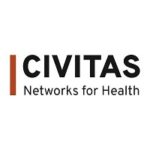 The Network for Regional Healthcare Improvement (NRHI) and the Strategic Health Information Exchange Collaborative (SHIEC) announced a formal affiliation between the two organizations to form a new organization named Civitas Networks for Health. The organization serves as a platform for local nonprofit health collaboratives and health information exchanges to grow and thrive. Read their latest news. Follow them @civitas4health.
The Network for Regional Healthcare Improvement (NRHI) and the Strategic Health Information Exchange Collaborative (SHIEC) announced a formal affiliation between the two organizations to form a new organization named Civitas Networks for Health. The organization serves as a platform for local nonprofit health collaboratives and health information exchanges to grow and thrive. Read their latest news. Follow them @civitas4health.
Civitas Networks for Health® and Its Members Uniquely Poised to Support States in Transforming Rural Health Care Through New Federal Program
Civitas Networks for Health® announced its readiness to help states implement the newly launched Rural Health Transformation Program (RHT), a $50 billion federal initiative aimed at reimagining care delivery in rural communities across the country.
State HIE News
WISHIN Stands Ready to Help Wisconsin Enact a Safety Plan for Minors
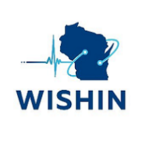 2025 Wisconsin Act 10 was signed into law on July 2, 2025, by Governor Evers. WISHIN is poised to play a key role in implementing the intent of Act 10. Through WI Act 10, the Department of Health Services (DHS) and WISHIN are tasked to develop and maintain a portal available throughout the state to facilitate sharing of safety plans among first responders for a minor in mental health crisis.
2025 Wisconsin Act 10 was signed into law on July 2, 2025, by Governor Evers. WISHIN is poised to play a key role in implementing the intent of Act 10. Through WI Act 10, the Department of Health Services (DHS) and WISHIN are tasked to develop and maintain a portal available throughout the state to facilitate sharing of safety plans among first responders for a minor in mental health crisis.
C3HIE Achieves HITRUST e1 Certification Demonstrating Foundational Cybersecurity
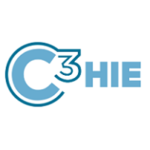 C3HIE, a leader in health information exchange (HIE) across Texas, announced its data centers and its health data management platform have earned certified status by HITRUST for foundational cybersecurity.
C3HIE, a leader in health information exchange (HIE) across Texas, announced its data centers and its health data management platform have earned certified status by HITRUST for foundational cybersecurity.
Hires and Openings
eHealth Exchange
Active in all 50 states, the eHealth Exchange is the largest query-based, health information network in the country. It is the principal network that connects federal agencies and non-federal organizations, allowing them to work together to improve patient care and public health. They have an open positions for:
VITL
VITL is passionate about improving health care for Vermonters. They are a mission-driven nonprofit that connects health care data across the state. VITL is where the health care and technology sectors meet. Their network facilitates the secure exchange of real-time information and makes it possible for providers to get the information they need to provide excellent health care for Vermonters. They have the following openings:
- HL7 Interoperability Engineer
- Business Analyst – Health Information Exchange (HIE) Platform Upgrade
Delaware Health Information Network
Delaware Health Information Network (DHIN) was the first live, statewide health information exchange in the nation. Launched in 2007, today it serves all of Delaware’s acute care hospitals and nearly 100% of the state’s medical providers. More than 14 million clinical results and reports are delivered through DHIN each year. There are over three million unique patients with results on DHIN, including patients from all 50 states. DHIN shares real-time clinical information to improve patient outcomes, eliminate the duplication of services and reduce the cost of healthcare. Check out their current openings for a Data Engineer and Senior Project Manager.
Contexture
Contexture is a nonprofit organization that provides strategic, technical and administrative support to communities committed to advancing health through information sharing. As the leading health information exchange for Arizona and Colorado, Contexture is the largest health information organization in the western region. Check out their current openings.
Upcoming Events
eHealth Exchange 2025 Annual Meeting
When: November 18, 2025
Where: Nashville, TN
Event Page
Register for this event.
Event hashtag: #eHx25
eHealth Exchange is pleased to host their 2025 in-person Annual Meeting this November in Nashville, Tennessee, the home of country music, bluegrass, R&B and other genres. This annual event is a must-attend gathering of health IT interoperability experts.
It is expected to draw more than 150 attendees including public health and federal agencies, health systems, physicians, regional and state health information exchanges, payers, as well as their eHealth Exchange Validated Vendors who support them. While their Annual Meeting is widely attended by eHealth Exchange participants, all are welcome!
ONC's Cures Act Final Rule
In May of 2020 the 21st Century Cures Act: Interoperability, Information Blocking, and the ONC Health IT Certification Program released by the ONC and published in the Federal Register.
The TEFCA Players
ONC Recognized Coordinating Entity (RCE)
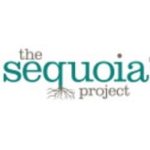 The Recognized Coordinating Entity (RCE) – The Sequoia Project (@sequoiaproject)is responsible for developing, implementing, and maintaining the Common Agreement component of the Trusted Exchange Framework and Common Agreement (TEFCA). The Common Agreement is the baseline technical and legal requirements for health information networks to share electronic health information and is part of the 21st Century Cures Act (Cures Act).
The Recognized Coordinating Entity (RCE) – The Sequoia Project (@sequoiaproject)is responsible for developing, implementing, and maintaining the Common Agreement component of the Trusted Exchange Framework and Common Agreement (TEFCA). The Common Agreement is the baseline technical and legal requirements for health information networks to share electronic health information and is part of the 21st Century Cures Act (Cures Act).
In addition they will collaborate with ONC to designate and monitor Qualified Health Information Networks (QHIN), modify and update an accompanying QHIN Technical Framework, engage with stakeholders through virtual public listening sessions, adjudicate noncompliance with the Common Agreement, and propose sustainability strategies to support TEFCA beyond the cooperative agreement’s period of performance.
On August 28, 2023, the ONC awarded The Sequoia Project 5-Year TEFCA RCE Contract to continue their services.
RCE Resource Library – which includes a guide to the Common Agreement, Standard Operating Procedures (SOPs), technical documents, and other resources that make up TEFCA’s rules of the road. Start your journey to next generation interoperability here.
The Sequoia Project Addresses Health Data Information Sharing with Educational Toolkit – The Sequoia Project released an informational and educational toolkit to support providers, health IT developers, health information networks and exchanges, and the greater healthcare community’s commitment to compliance with the federal Information Blocking Rule (IBR).
The Sequoia Project Releases Data Usability Guide Version 2.0 – The Sequoia Project announced the release of the Data Usability Implementation Guide Version 2.0 created by its Interoperability Matters Data Usability Workgroup (DUWG). This resource covers the identified priority use cases that can be readily adopted within health information exchange vendors, implementers, networks, governance frameworks, and testing programs within 18 months.
The Sequoia Project Publishes State of Consent Capabilities – The Sequoia Project published Moving Toward Computable Consent: A Landscape Review for public feedback. This whitepaper explains the importance of managing privacy and consent when sharing personal health information, scans the current landscape of challenges facing those entrusted with personal health information, enumerates existing solutions, and explores the strengths and deficiencies of these approaches.
Designated QHINs as of February 2024
Candidate QHINs
Organizations that have completed the Qualified Health Information Network® (QHIN™) application and have been accepted into the project planning and testing phase of the on boarding and designation process.
Interoperability Market
According to research by Grand View Research, the global healthcare interoperability solutions market size was estimated at USD 3.42 billion in 2023 and is projected to grow at a compound annual growth rate (CAGR) of 14.15% from 2024 to 2030. An increase in the adoption of interoperability solutions by healthcare authorities, a rise in investments to enhance healthcare facilities, favorable government initiatives to improve patient care, high government funding, and a focus on patient-centric care are some major factors propelling the market growth. In February 2023, the federal government provided USD 505 million to federal data partners and Canada Health Infoway to advance digital health tools and an interoperability roadmap. Thus, the rising investments and funding from government bodies are anticipated to drive the industry growth.

